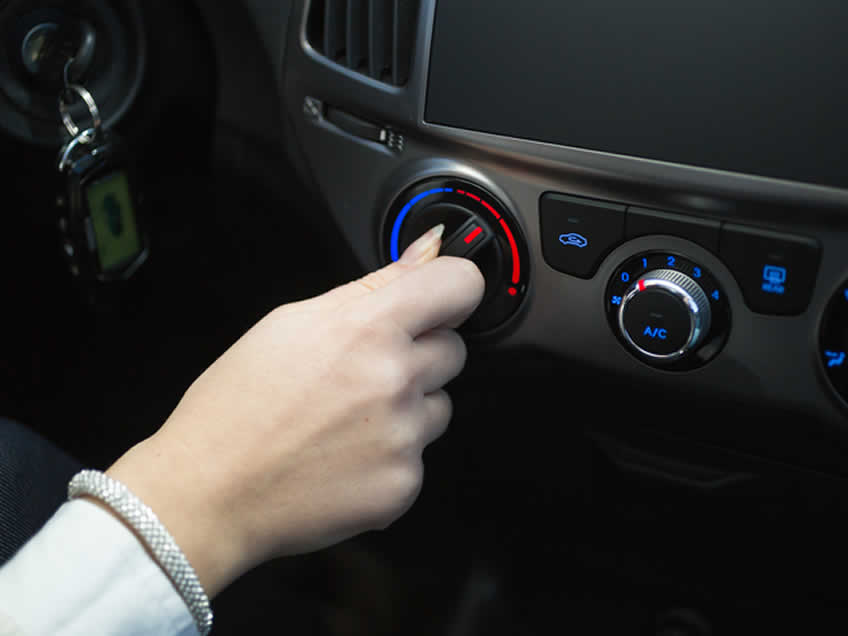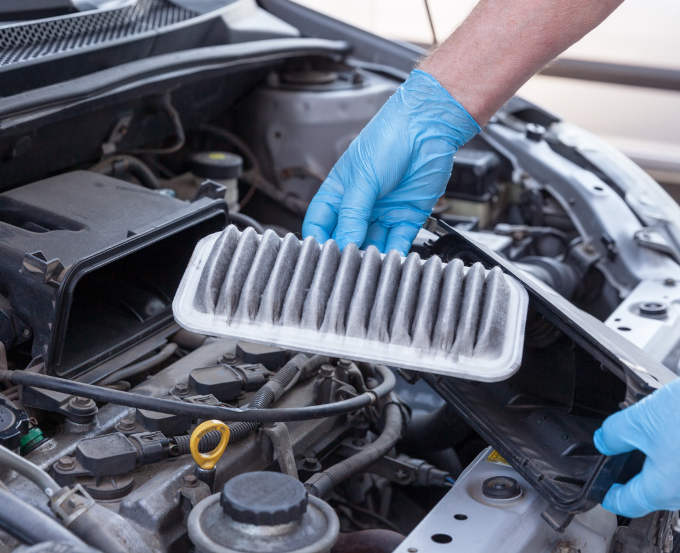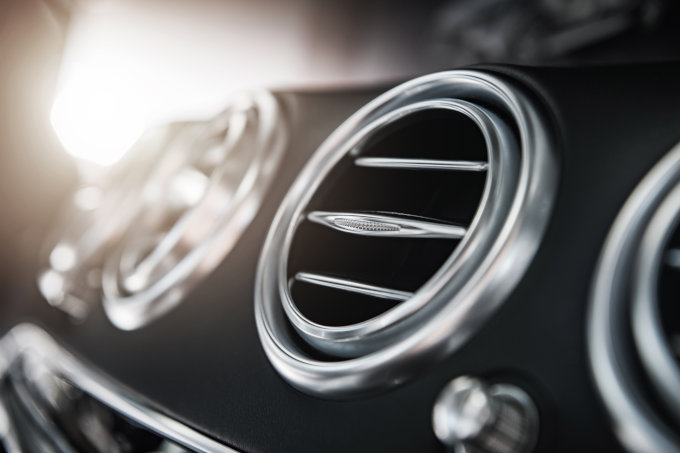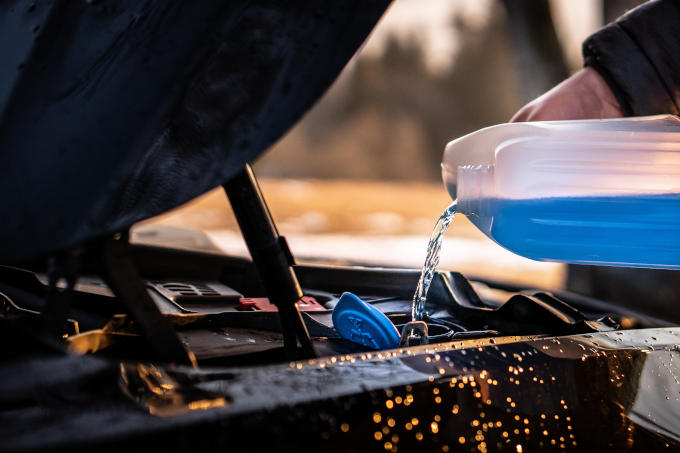Originally published on 06/23/2015
Updated on 07/27/2022
In all the years we’ve been operating our Lee’s Summit, MO AAMCO Center, we’ve heard a lot of very questionable “facts” about vehicle systems, components, and maintenance. Perhaps the most pervasive of all are the myths that get pushed around about vehicle cooling systems. Many people are still greatly influenced by these wrong ideas, much to the detriment of their vehicles!
To help set the record straight, we’ve prepared a list of the most common cooling system myths, which we will bust wide open. Hopefully, after reading this, you’ll understand better how to look after your vehicle’s cooling system.
Myth No. 1: My Cooling System Doesn’t Need Maintenance
Too many vehicle owners fall into the same trap when it comes to maintenance: “it seems to be working fine right now, so why bother paying an auto repair shop for maintenance?” The poor logic here is in assuming your vehicle doesn’t need maintenance because it appears to be running fine. You should recognize that your vehicle is running fine because it has had maintenance.
The cooling system is no different. It’s an intricate part of your vehicle’s mechanical make-up and has several individual parts and components that need regular attention. These include (but are not limited to):
- Radiator fan - Pulls air through the vehicle’s radiator and A/C condenser to maintain cooling and air conditioning when the car is stationary or moving too slow by pulling air through the grille.
- Reserve tank - Holds coolant after it expands due to engine heat and gives it a place to cool back down before returning to the radiator.
- Bypass system - Allows coolant to keep flowing through the engine when the thermostat is closed, ensuring the engine always has coolant flowing through it to prevent hot spots.
- Pressure cap - Designed to create and maintain cooling system pressure typically at 16 – 18lbs PSI, which increases the boiling point of the coolant and allows the engine to run hotter without boiling.
- Freeze plugs - Freeze plugs are safety devices that push out and help prevent the engine block from breaking and cracking due to antifreeze to water mix error. The cooling system should be maintained to a 50/50 antifreeze to water mix to insure against freezing. Adding pure water to the cooling system without antifreeze will dilute the mixture, risk freezing in cold weather, and damage the freeze plugs and engines if severe enough.
Your vehicle is an intricate network of interconnected parts. When even one part of the system starts to go wrong, it affects the rest.
Myth No. 2: Why Bother with Coolant When Water Will Do?
Water cools, doesn’t it? We can agree on that. So why bother paying for coolant to put in your vehicle? Isn’t it just a con from big corporations trying to trick us into spending money on things we don’t need?
Coolant is a necessity, not a luxury. While it’s true that water is a natural coolant and does indeed regulate temperatures within the engine very well. However, it’s also naturally corrosive and packed with minerals and other things that the mechanical systems in your vehicle don’t like. This is where coolant comes in. Coolant mitigates the corrosive effects of the water and, at the same time, enhances the heat transfer effects of the water.
Additionally, water boils at 212 degrees Fahrenheit. Straight glycol/coolant has a boiling point of close to 380 degrees Fahrenheit, but you shouldn’t use pure glycol in your cooling system. A 50/50 – 60/40 mix along with the pressure cap will increase the boiling point of the liquid boiling point to approximately 260 degrees. This combination of coolant mix and radiator pressure prevents overheating in hot weather or when the engine is under increased strain. Plain water boils at 212 degrees, and plain water in your cooling system could boil, overflow and damage expensive components, such as your engine, radiator, hoses, seals, and gaskets. A coolant and water mix, a good pressure cap, and a leakless system are the winning combination for protecting your engine against overheating and mineral build-up.
Myth No. 3: There’s a Leak? Never Mind!
This one may sound a little unbelievable to some people, but some still see that their car or truck is leaking coolant—or another fluid like transmission fluid—and think nothing of it. They just think it’s a normal occurrence, that sometimes fluids seep out, and that’s why we replace them every few thousand miles.
If this has ever entered your mind, please expel that thought immediately! Vehicle leaks of any kind are bad news. If you’re leaking coolant, it likely means that you have a leak in one of your coolant system components, such as the radiator, water pump, coolant hoses, heater core, or a gasket or seal. If the system has many miles on it and has not been maintained regularly, freeze plugs can rust from the inside out and begin to weep. Changing your coolant at the prescribed intervals will help avoid some of these possibilities but remember, rubber and gasket materials do age and will start to leak over time.
A vehicle is built to hold fluid indefinitely, not leak it. Any leak you see is a big problem and has to be addressed immediately. Remember: losing fluid means losing functionality.
Myth No. 4: All Coolant Components Are Made Equal
Our globalized world allows for much outsourcing and overseas manufacturing, leading many to believe that virtually any product, no matter the brand, is the same as any other product in quality.
While that might apply to some items, it does not apply to coolant components. It’s a terrible and counterproductive myth to assume that you can just purchase the cheapest parts, and everything will be fine. Quality matters most if you want your cooling system to keep working optimally.
(Dis)honorable Myth Mentions:
The following three points didn’t make our main list, but we thought they were still worth mentioning since we’ve heard our customers bring them up.
Myth #1 - Remove the Thermostat and Watch Engine Overheating Disappear!
Hoo boy. This one ranks alongside putting a sticker over your Check Engine Light (CEL) and believing the problem has gone away. If you think removing the thermostat will help, you’ll just be buying yourself a one-way ticket to extreme (and expensive) engine damage. The thermostat regulates coolant flow and allows the engine to heat up to operating temperature, which is essential to a properly running and efficient engine and transmission. It also restricts the flow of coolant as needed to allow the radiator to do its job and remove heat from the coolant. If the coolant runs through the radiator too fast, the coolant does not stay in the radiator long enough for the heat to be removed.
Myth #2 - Cooling System Flush? Waste of Time!
If you’ve ever heard someone claiming that flushing the cooling system is a technician's trick to swindle money from customers, please feel free to correct them with the facts. First, coolant loses its protective effects over time, so it’s necessary to flush the old coolant out and replace it with fresh stuff. Your owner’s manual can help determine how often you should have this service done.
Myth #3 - Distilled Water Is a Con
Using distilled water instead of regular water in your coolant mix isn’t some trick, either. Distilled water has more of its corrosive elements and mineral deposits removed from it, making it gentler on your engine.
Does Your Cooling System Need Attention?
Did you know the engine coolant also cools your transmission? Well, it does! The transmission cooler on most vehicles is located inside your radiator. Keeping your vehicle's cooling system in good condition helps ensure that your engine and transmission remain cool and efficient, preventing them from overheating and other problems. When was the last time you had your vehicle’s cooling system serviced? Feel free to give AAMCO Lee’s Summit a call and schedule an appointment!










